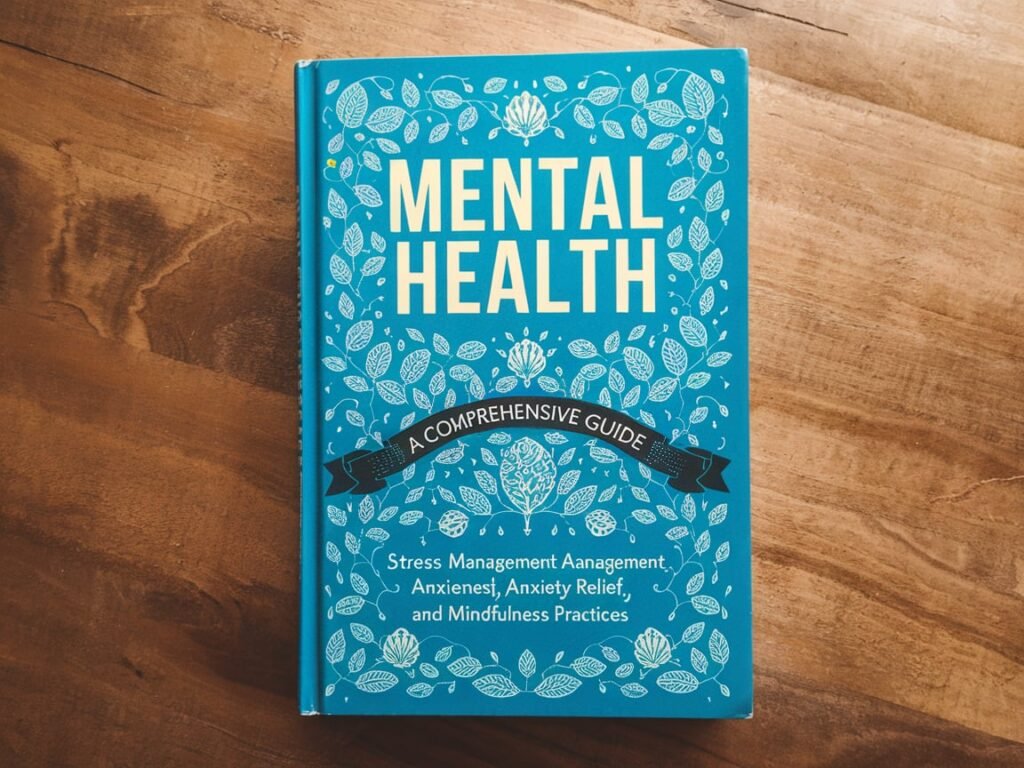Mental health refers to our emotional, psychological, and social well-being. It affects how we think, feel, and act, and it plays a critical role in determining how we handle stress, relate to others, and make choices. Mental health is important at every stage of life, from childhood and adolescence through adulthood.
Key Components of Mental Health:
- Emotional Well-Being: The ability to manage emotions and cope with stress.
- Psychological Well-Being: How we think and perceive ourselves and the world around us.
- Social Well-Being: The ability to form healthy relationships and interact with others.
How to Improve Mental Health
Improving mental health involves adopting strategies and lifestyle changes that promote emotional and psychological well-being. Here are several effective approaches:
1. Practice Self-Care
- Prioritize Sleep: Aim for 7-9 hours of quality sleep each night.
- Eat a Balanced Diet: Incorporate fruits, vegetables, whole grains, and lean proteins to nourish your body and mind.
- Stay Hydrated: Drink plenty of water throughout the day.
2. Engage in Regular Physical Activity
- Exercise releases endorphins, which can improve mood and reduce stress. Aim for at least 150 minutes of moderate aerobic activity each week.
3. Cultivate Mindfulness and Relaxation Techniques
- Mindfulness Meditation: Practice being present and aware of your thoughts and feelings without judgment.
- Deep Breathing Exercises: Simple breathing techniques can reduce anxiety and promote relaxation.
4. Build and Maintain Strong Social Connections
- Spend time with friends and family, and engage in community activities. Strong relationships provide emotional support and reduce feelings of isolation.
5. Seek Professional Help When Needed
- If you’re struggling with mental health issues, don’t hesitate to seek help from a therapist or counselor. Professional support can provide tools to cope with challenges effectively.
6. Limit Screen Time and Social Media Use
- Excessive use of social media can lead to feelings of inadequacy and anxiety. Set boundaries for screen time and focus on real-life interactions.
7. Set Realistic Goals
- Break tasks into manageable steps and set achievable goals. Celebrate small accomplishments to build confidence and motivation.
8. Engage in Hobbies and Interests
- Pursue activities you enjoy, whether it’s reading, painting, gardening, or playing a musical instrument. Hobbies can provide a sense of purpose and fulfillment.
9. Practice Gratitude
- Take time to reflect on what you’re thankful for. Keeping a gratitude journal can help shift your focus from negative thoughts to positive experiences.
10. Educate Yourself About Mental Health
- Understanding mental health can empower you to recognize symptoms and seek help when necessary. Resources such as books, podcasts, and reputable websites can provide valuable information.
11. Develop Healthy Coping Mechanisms
- Instead of turning to unhealthy habits (like substance abuse), find healthier ways to cope with stress, such as journaling, talking to a friend, or engaging in creative activities.
12. Establish a Routine
- Having a daily routine can create structure and stability, which can be especially helpful during challenging times.
Conclusion
Improving mental health is an ongoing process that requires self-awareness, commitment, and support. By incorporating these strategies into your daily life, you can foster better mental well-being and enhance your overall quality of life. Remember, it’s okay to seek help and take the time you need to care for your mental health.
FAQs about Mental Health
1. What is mental health?
Mental health refers to our emotional, psychological, and social well-being. It affects how we think, feel, and act, influencing our ability to handle stress, relate to others, and make decisions.
2. Why is mental health important?
Mental health is essential for overall well-being. It impacts our relationships, productivity, physical health, and quality of life. Good mental health enables us to cope with challenges and enjoy life.
3. What are common mental health disorders?
Common mental health disorders include anxiety disorders, depression, bipolar disorder, schizophrenia, and post-traumatic stress disorder (PTSD).
4. How can I improve my mental health?
You can improve your mental health by practicing self-care, engaging in physical activity, cultivating mindfulness, building strong social connections, seeking professional help when needed, and developing healthy coping mechanisms.
5. What are some signs of poor mental health?
Signs of poor mental health include persistent sadness, irritability, withdrawal from social activities, changes in sleeping or eating patterns, difficulty concentrating, and physical symptoms like fatigue.
6. When should I seek professional help?
You should seek professional help if you experience persistent symptoms that interfere with your daily life, such as severe anxiety, depression, or thoughts of self-harm. Early intervention can lead to better outcomes.
7. Can physical activity really improve mental health?
Yes, regular physical activity releases endorphins, which can enhance mood and reduce stress. Exercise has been shown to be effective in managing symptoms of anxiety and depression.
8. How does mindfulness help with mental health?
Mindfulness practices, such as meditation and deep breathing, help you stay present and reduce anxiety. They can improve emotional regulation and enhance overall well-being.
9. Is it normal to feel stressed or anxious?
Yes, it’s normal to experience stress and anxiety, especially during challenging times. However, if these feelings become overwhelming or persistent, it may be helpful to seek support.
10. How can I support someone with mental health issues?
You can support someone by listening without judgment, encouraging them to seek professional help, checking in regularly, and offering practical assistance when needed.

